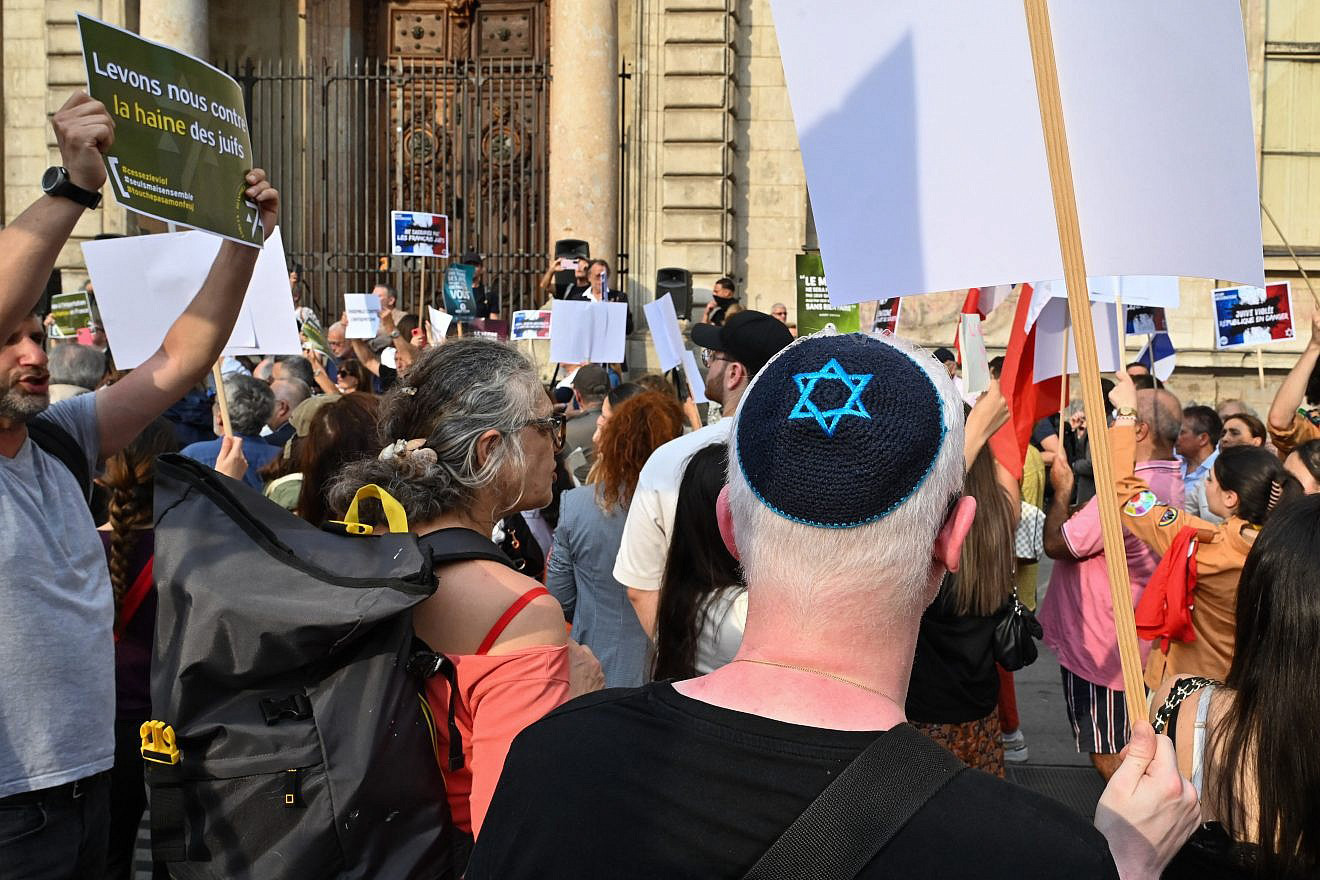Courtesy of JNS. Photo credit: Matthieu Delaty/Hans Lucas/AFP via Getty Images
People attend a demonstration against antisemitism in Lyon, France, June 25, 2024
(JNS) — Thirty-six countries and international bodies led by the United States endorsed the Global Guidelines for Countering Antisemitism in Argentina on Wednesday.
The special envoys and other representatives adopted the 12 nonbinding guidelines at a time when the world is seeing a spike in antisemitism, in part triggered by events in the Middle East.
Buenos Aires hosted the global gathering on Thursday as they attended a ceremony to mark the 30th anniversary of the bombing of the Jewish community center in the Argentine capital.
Eighty-five people were killed in the attack on the Argentine Israelite Mutual Association (Spanish initials: AMIA) and more than 300 were wounded. The terrorist attack was ordered by the Islamic Republic of Iran and carried out by its Lebanese proxy Hezbollah.
JNS caught up with Michal Cotler-Wunsh, a former member of Knesset who is Jerusalem’s special envoy for combating antisemitism, just before she entered the ceremony.
She praised the inclusion of the International Holocaust Remembrance Alliance (IHRA) Working Definition of Antisemitism in the document.
“This was an especially important declaration on behalf of all the states and certainly Israel as a signatory,” Cotler-Wunsh said. “The IHRA Working Definition of Antisemitism is the benchmark by which we can identify and combat all strains of what is an ever-mutating, shape-shifting hatred that kills.”
Cotler-Wunsh added, “Israel was involved in the framing and in not just the endorsement of the global guidelines but actually in the understanding that IHRA is going to have to be the key, the only way to be able to identify this new mutated strain of anti-Zionism which negates Israel’s very right to exist.”
The IHRA definition mentions Israel several times in examples of antisemitism, based on Natan Sharansky’s “three Ds” test: delegitimization, demonization and double standards.
The envoy also cited another Hezbollah attack in Buenos Aires two years before the AMIA bombing, when a suicide bomber drove a truck into the Israeli embassy, killing 29 civilians and wounding 242 others.
The AMIA bombing was followed 29 years later “by the October 7 war crimes and crimes against humanity, in which the very same Iran and its very same proxies Hezbollah and Hamas and others continue in their intent to annihilate the state of Israel and Jews around the world,” Cotler-Wunsh said.
She emphasized the importance of the IHRA’s antisemitism definition, which has been adopted by more than a thousand global entities, including over 40 United Nations member states, since the IHRA adopted the language in 2016.
U.S. Envoy for Combating Antisemitism Deborah Lipstadt in a social media post on Wednesday called the guidelines a “significant step forward in our collective efforts against antisemitism,” while urging more governments and institutions to “join us in this crucial mission to safeguard Jewish communities and promote a world free from antisemitism.”





